Post-Graduation in New Companion Animals – 1st Edition
Exotics, or New Companion Animal (NCA) Medicine is a rapidly expanding field within veterinary practice, reflecting the growing diversity of species kept as pets and the need for specialized clinical responses.
This fully online postgraduate course aims to meet the demand for advanced and up-to-date training in the clinical management of small mammals, birds, reptiles, amphibians, invertebrates, and ornamental fish. The programme brings together internationally recognised lecturers with extensive academic and practical experience, ensuring a strong technical-scientific framework focused on clinical application.
With a total of 80 hours, delivered through both live thematic sessions and recorded content, the course combines flexible access with academic rigour, promoting the development of essential skills for medical care of non-conventional species.
This postgraduate course is designed for veterinarians (and, in exceptional cases, veterinary nurses) seeking to deepen their expertise in ECAM—whether newly qualified professionals entering the job market or practicing clinicians increasingly faced with these species and wishing to update their diagnostic and therapeutic approaches.
Why choose this course?
- 100% Online – Learn where and when you like, without compromising the quality and technical depth of in-person training.
- Unlimited access to recorded sessions – Revisit the content whenever needed, at your own pace, and consolidate your knowledge effectively.
- International speakers – Learn from leading global experts, offering diverse perspectives and real clinical case studies.
- Practical and applied training – Includes case discussions, procedure videos, and exclusive supplementary materials.
Objective
To provide advanced, flexible, and accessible postgraduate training with cutting-edge speakers in the field of exotic companion animals.
- Equip veterinarians to clinically manage exotic companion animals (reptiles, birds, small mammals, fish, invertebrates).
- Update knowledge based on the latest scientific evidence and clinical best practices.
- Promote animal welfare and responsible, legal practices in the handling and trade of these species.
- Foster international networks for training and collaboration among veterinarians and specialists.
- Strengthen participants’ professional differentiation in an increasingly competitive market.
Invest in your future and in the well-being of your exotic patients!
- English
- 100% Online: Synchronous and asynchronous (possibility to assist live, or watch sessions recordings later)
- Lecturers
- From January 3rd to June 27th
- 80H
- Registration
- Capped at 30 participants
- Certificate of Completion
For more informations, please contact +351 969 918 680 ou formacao@euvg.pt
Target Audience
- Newly graduated veterinarians:
- Who wish to specialize in an area with increasing demand.
- Seeking practical and up-to-date training before entering the job market or starting an internship/placement.
- Interested in developing clinical skills applied to non-conventional species.
- Practising veterinarians
- With an interest in expanding or deepening their clinical work with new companion animals.
- Looking to update their knowledge in light of scientific advancements and new legal and ethical requirements.
- Veterinarians working in general or specialised clinics, rehabilitation centres, zoos, or educational institutions.
Fees and Registration
Application fee and administrative charges – 50€
Tuition fee – 1.750€
Possibility to pay in 4 interest-free instalments (please get in contact with us).
Webinar - Why should we be caring for fish in our veterinary practices?
Despite their biological and ecological importance, fish remain among the most overlooked patients in veterinary care and training. This webinar invites veterinarians to look below the surface — to understand their needs, their suffering, and the science that allows us to care for them better.
From ornamental species in homes to endangered wildlife, veterinarians play a key role in ensuring fish health and welfare. Join us to explore how fish medicine connects clinical practice and conservation — and why this field matters for the future of veterinary medicine.
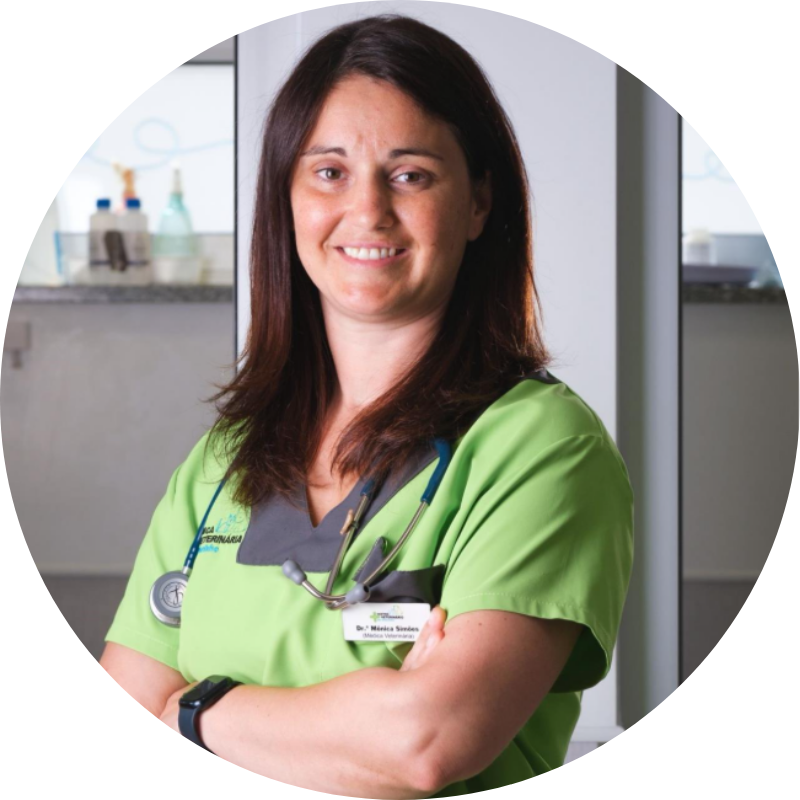
More people are choosing rabbits, birds, reptiles, and other exotic animals as pets—and the truth is, in clinical practice, we often see such cases. However, we know that our basic training in Veterinary Medicine doesn’t always prepare us as it should to deal with these types of species, which have very specific needs.
It’s about investing in knowledge to be able to offer quality care to all patients, even those with feathers, scales, or long ears.
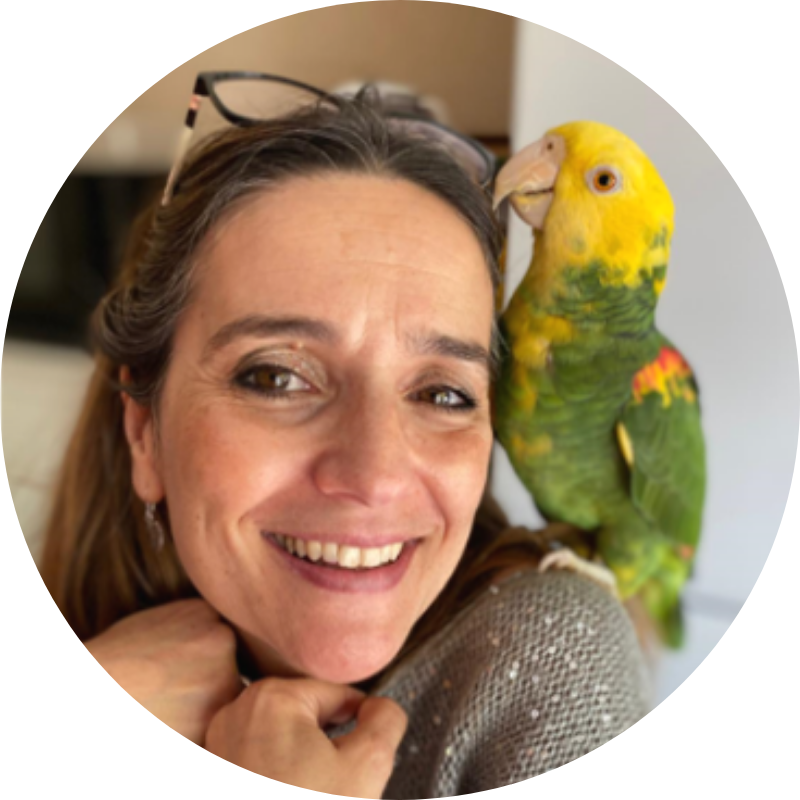
Having a pet is not only a great joy, but also a great responsibility.
Having a veterinarian specialized in this type of animal gave me the confidence to embark on this unique journey of sharing life with a companion who may live more than 60 years, as is the case with Coco, my parrot.
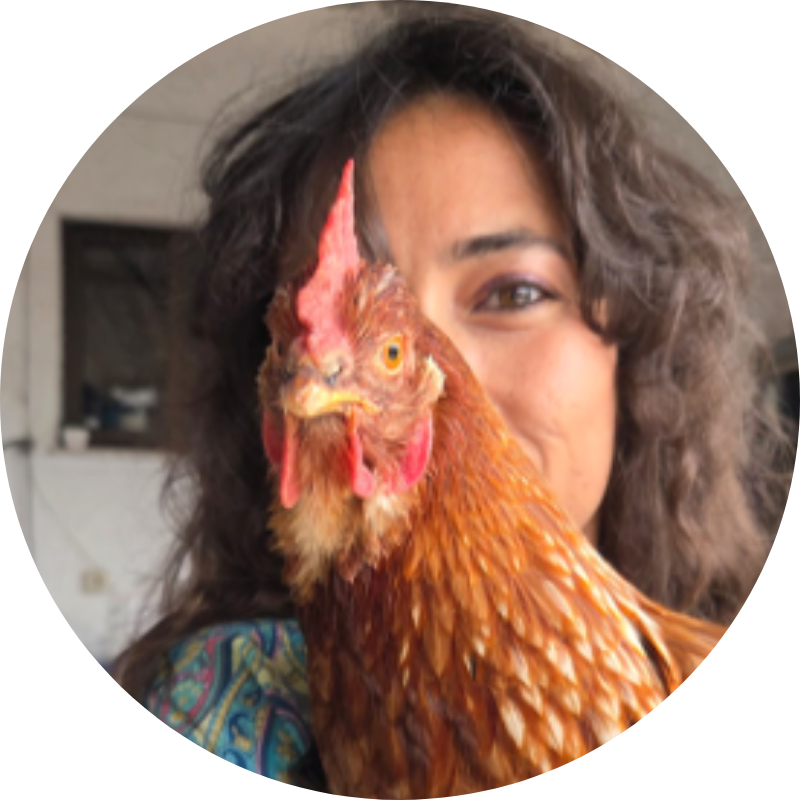
As a guardian of seven hens, I can assure you that having chickens as companion animals is a unique and rewarding experience.
However, It is still difficult to find professionals with specific knowledge about birds, since most are trained for dogs and cats. This lack of specialization compromises the health and well-being of these amazing animals.
Lecturers
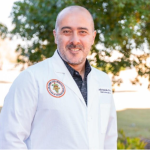
João Brandão
João Brandão, LMV, MS, Dipl. ECZM (Avian), Dipl. ACZM, Associate Professor of Zoological Medicine at the Oklahoma State University earned his veterinary degree from the University of Tras-os-Montes e Alto Douro in Vila Real, Portugal. He completed exotic animal and zoological medicine internships at the Great Western Referrals (Swindon, UK), Tufts University (North Grafton, MA), and the University of Georgia (Athens, GA). Brandao completed a three-year zoological medicine residency and a Master of Science degree in Veterinary Clinical Sciences at Louisiana State University. He is a diplomate of the European College of Zoological Medicine (Avian), the American College of Zoological Medicine, and EBVS® European Veterinary Specialist in Avian Medicine and Surgery. He has been awarded the Debbie and Wayne Bell Professorship in Veterinary Clinical Sciences.
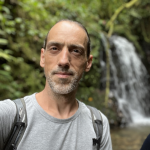
Tom Hellebuyck
Dr. Tom Hellebuyck graduated as a veterinarian from the Faculty of Veterinary Medicine of the Ghent University (Belgium) in 2006. Following his PhD that focused on Devriesea agamarum infections in lizards, he continued to perform research on the health problems of a variety of reptiles, amphibians, and birds. He became head of the clinic at the Division for Exotic Companion Animals and Wildlife at the Faculty of Veterinary Medicine of the Ghent University. He is a Diplomate of the European College of Zoological Medicine (Herp) and is actively involved in several ECZM committees. He has authored and co-authored numerous scientific publications and book chapters and is a frequent speaker at national and international conferences. In addition, he acts as an advisor to national authorities with regard to reptile medicine and welfare. He is the current representative member of the country in the ARAV International Committee.
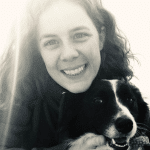
Sara Dias
Sara graduated from University of Lisbon, in Portugal, in 2010. She completed a one year internship in exotic animal medicine and zoological medicine at Los Sauces (Madrid, Spain), followed by two years of small and exotic practice in Portugal. Sara started her European College of Zoological Medicine Small Mammal Residency at Universitat Autònoma de Barcelona (Spain) in 2015. After finishing her residency, she moved to the USA to work as an Assistant Professor at Kansas State University for two years, and in 2019 she decided to move to the UK, to work at a Private Multidisciplinary Referral Hospital (currently working as the Head of the Exotics Service at Willows Referrals) and as a Clinical Assistant Professor at Nottinhgam University. Sara loves teaching and empowering new generations. Sara is a member of the education and examination committee (chair for Small Mammals) of the ECZM and is also actively involved in several zoological medicine organizations. Sara is currently doing her PhD at Universidad de Las Palmas de Gran Canaria (Spain), and is a regular speaker at both national and international conferences, CPD courses and post-graduate certificate courses, and she publishes regularly in national and international research journals.
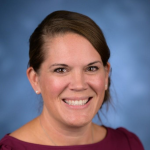
Olivia Petritz
Dr. Olivia Petritz obtained her veterinary degree at Purdue University, and following graduation, she completed several internships followed by a residency at the University of California, Davis in companion exotics and zoo medicine. She became board certified in the American College of Zoological Medicine in 2013. She then founded an exotics service at a specialty hospital in Los Angeles and worked there for four years prior to joining the faculty at NC State in 2017. Olivia is currently an Associate Professor of Avian and Exotic Animal Medicine at NCSU, and her research interests include avian therapeutics and imaging of exotic pet species.
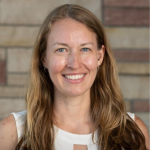
Miranda J. Sadar
Dr. Miranda Sadar is a graduate of the Colorado State University’s College of Veterinary Medicine and Biomedical Sciences. After graduation, she completed a one-year clinical internship in zoological, zoological companion animal, and wildlife medicine at the Western College of Veterinary Medicine in Saskatoon, Saskatchewan. After finishing a two-year fellowship at the Wildlife Center of Virginia, she completed a zoological residency with a focus on zoological companion animals at the University of California, Davis. Dr. Sadar was an Assistant Professor at the Western College of Veterinary Medicine for two years prior to moving back to Colorado State University, where she is an Associate Professor in the Avian, Exotic, and Zoological Medicine service. In 2016, she became a Diplomate of the American College of Zoological Medicine. Dr. Sadar’s research interests focus on minimally invasive modalities to decrease stress, both situational and painful stress, in non-traditional species.
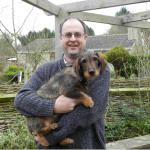
John Chitty
Graduated from London University 1990. RCVS Certificate in Zoological Medicine 2000. RCVS Advanced Practitioner in Zoological Medicine 2015. Previously practice owner (100% avian/ exotics/ small mammal/ zoo caseload) in Hampshire. Currently providing consultancy and advisory services to vets, zoo collections and Local Authorities. Consultant to two reintroduction projects. Past president of Veterinary Invertebrate Society, European Association of Avian Veterinarians and also of the British Small Animal Veterinary Association. Numerous publications on a variety of species including writing/ editing five textbooks (sixth & seventh on the way!). Currently Hon Secretary and trustee of Vetlife.
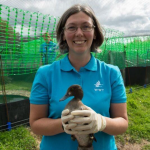
Michelle O’Brien
Michelle is the Veterinary and Wildlife Health Officer for the Wildfowl & Wetlands Trust (WWT) based at Slimbridge in Gloucestershire. After graduating from the Royal Veterinary College in 1999 she spent six and a half years in general and exotics referral practice. She gained the RCVS Certificate in Zoological Medicine in 2005 and the ECZM Diploma in Zoo Health Management in 2017. She is now a European Veterinary Specialist in Zoo Health Management and an RCVS recognised Specialist in Zoo and Wildlife Medicine. Michelle has worked at WWT since 2006 and has joint responsibility for veterinary care at seven of the ten WWT centres in the UK and provides veterinary advice to a number of conservation programmes. Michelle volunteered at the “Invertebrate House” in London Zoo for a number of years both before and during her veterinary degree studies and has maintained her fascination for invertebrate species and desire to help improve their welfare and veterinary care ever since. She is currently a committee member for the Veterinary Invertebrate Society (VIS). Michelle frequently presents at national and international conferences and has written and co-authored a number of journal papers, articles and chapters in veterinary textbooks.
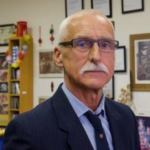
Zdenek Knotek
Professor Zdenek (Sid) Knotek is the founder and Head of Avian and Exotic Animal Clinic, University of Veterinary Sciences Brno, Czech Republic (2003 - 2024) and former adjunct professor on Department of Veterinary Clinical Science, Purdue University (IN, USA). He is a founding member and active diplomate of the European College of Zoological Medicine (Herpetological Medicine and Surgery), member of ARAV, a former-president of the European Association of Zoo and Wildlife Veterinarians (EAZWV), and a president of the Czech Association of Zoo and Wildlife Veterinarians (CAZWV). As a visiting professor Sid Knotek had part of his teaching activities dealing with reptiles in other universities (Ankara, Budapest, Copenhagen, Istanbul, Kosice, Ljubljana, Zagreb, Porto, Lisabon, Villa Real, Utrecht, Vienna, Warsaw, Cracow, Wroclaw, Purdue (IN, USA), Sydney (Australia), Denpasar (Indonesia). As a founder of reptile medicine specialty at Clinic for Reptile, Avian and Fish Medicine, professor Knotek headed the Unit for Reptiles and Pet Birds at University of Veterinary Medicine Vienna (2010-2013). His current focus involves anaesthesia/analgesia, medicine, surgery and endoscopy in reptiles. Sid supervised international training courses for exotic medicine: Summer School for Exotic Medicine and Surgery (2004 - 2019) and ESAVS courses in Europe – Exotic Pets Medicine and Surgery (since 2005). Since 2015 Sid supervises ESAVS-China exotic pets courses in China.
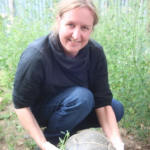
Sarah Pellett
Sarah graduated from the University of Cambridge in 2006. She has worked in first opinion and referral exotics practices and has completed the RCVS Certificate in Advanced Veterinary Practice (Zoological Medicine). In 2016 she obtained the RCVS Diploma in Zoological Medicine and in 2017 became an RCVS Recognised Specialist in Zoo and Wildlife Medicine. Sarah works as a locum for RSPCA Stapeley Grange and East Winch Wildlife Centres, in addition to working as a first opinion and referral vet seeing a wide range exotic animal cases. Sarah is a veterinary advisor on invertebrate health for the British and Irish Association of Zoos and Aquaria (BIAZA) Terrestrial Invertebrate Working Group and a committee member for the Veterinary Invertebrate Society (VIS). Sarah is also on the British Veterinary Zoological Society (BVZS) Council. Sarah is a member of the World Aquatic Veterinary Medical Association (WAVMA) and has completed the WAVMA Aquatic Veterinarian Certification Program in August 2023. Sarah frequently peer reviews and writes for journals and has co-authored chapters in veterinary textbooks. Sarah presents at national and international conferences and lectures for CPD providers.
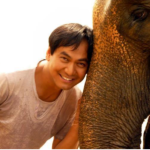
Norin Chai
Norin graduated from the Ecole Nationale Vétérinaire d’Alfort,France and completed two Master of Science, one in «Tropical animal pathology» and one in “Tropical Animal Production”. In 1996, he finished his doctoral degree in Veterinary Medicine on “Ecology and Ethology of the Leopard (Panthera pardus)”. He started his career with the position of director of the National Park of Manda (Chad) from 1995 to 1996. In 1997, he entered the National Museum of Natural History (France) as a research Engineer and as the deputy director of the Parc de la Haute Touche (zoological park in center of France). In 2000, he moved back to Paris as a field vet in the Menagerie du Jardin des Plantes (a zoo in Paris). In 2008, he finished his second doctoral degree (PhD) on Amphibian medicine. In 2013 he became a Diplomate of the European College of Zoological Medicine in Zoo Health Management. From 2005 until September 2020, he had been the head veterinarian and the deputy director of the Ménagerie. He quite his position in October 2020 to follow his own personal projects. Norin is the founder and president of Yaboumba, a NGO working in Conservation and humanitarian projects. He is regularly asked for expertise on wildlife medical cases and conservation projects around the world. He has published numerous articles in veterinary journals, national magazines, and given hundreds of lectures in national and international congresses.
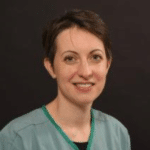
Claire Vergneau-Grosset
Claire Vergneau-Grosset is an Associate Professor in Zoological Medicine at Université de Montréal Faculté de médecine vétérinaire in Canada. She has also been affiliated with the Aquarium du Québec since 2015. Claire graduated from the École Nationale Vétérinaire d'Alfort in France in 2008. She completed an internship in veterinary clinical sciences (IPSAV) in zoological medicine at the Université de Montréal in 2009 followed by a residency in Companion Avian and Exotic Pet Medicine at the University of California, Davis (UCD) from 2011 to 2014. Dr. Vergneau-Grosset became a Diplomate of the American College of Zoological Medicine in 2014. She worked as a Clinical instructor in aquatic animal health at UCD from 2014 – 2015, performing applied research and providing consultations for ornamental fish, both owned as pets or held in aquaculture and zoos. Dr. Vergneau-Grosset worked as a teaching clinician in zoological medicine at the University of Montreal from 2015 to 2019. Claire has authored scientific articles about aquatic invertebrates, fish, reptiles, birds, and mammals and she has presented locally, nationally, and internationally on these subjects. She has a strong research interest for fish welfare and analgesia and has received the Zoetis award for Excellence in Research in 2025.
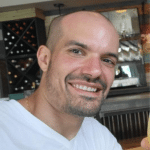
Peter DiGeronimo
Peter DiGeronimo completed a bachelor's degree in biology from Drew University in 2006 and then earned his veterinary degree and a graduate certificate of veterinary public health from the University of Pennsylvania School of Veterinary Medicine in 2010. He spent the next 5 years in small animal and exotic companion animal practice before completing a specialty internship in zoological medicine at Louisiana State University, the Audubon Zoo, and the Baton Rouge Zoo and a master's degree in Wildlife & Ecosystem Health from the University of Edinburgh in 2016. Dr. DiGeronimo worked as a clinical instructor of zoological medicine at the University of Pennsylvania for 3 years and where he continues to serve as an adjunct professor. He was the veterinarian for Adventure Aquarium for 4 years before taking his current role as an associate veterinarian at the Philadelphia Zoo in 2021. He became a board-certified specialist in the American College of Zoological Medicine in 2020, continues to lecture and to publish on the medicine and conservation of a variety of species, and currently serves as a veterinary advisor for the AZA's New World Primate TAG and Lion Tamarin SSP.
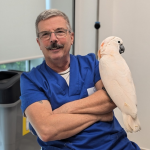
Lorenzo Crosta
Lorenzo Crosta graduated in 1989 in Veterinary Medicine in Italy and received his PhD in Veterinary Clinical Sciences in 2009. He was the Veterinary Director at the Loro Parque (Spain) from 2000 until 2005. He has been Chairman of the European Committee of the Association of Avian Veterinarians and President of the Italian Society of Exotic Animal Veterinarians (SIVAE). In 2013, he was accredited as Avian and Zoo animal Veterinarian by the Italian Federation of Veterinary Boards (FNOVI). In 2015, he received his ISVPS General Practitioner Certification in Exotic Animal Practice, and in 2016 he became a Diplomate of the European College of Zoological Medicine. He is currently the Secretary of the College. From March 2018 to August 2021, he was Associated Professor of Avian and Zoological medicine at the University of Sydney and Director of the Avian, Reptile and Exotic Pet Hospital in Camden. Lorenzo is currently a contracted professor at the University of Milan, and in 2019, he was the recipient of the TJ Lafeber award for the “Avian Practitioner of the Year”. From 2023, he is also a Diplomate of the American College of Exotic Pet Medicine, and has published more than 35 scientific papers, more than 20 book chapters and has presented more than 300 talks, presentations, courses and practical labs in more than 20 countries.
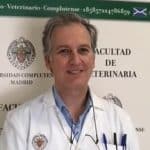
Jesús María Fernández Sánchez
Dr Jesús María Fernández Sánchez, is Doctor of Veterinary Medicine (DVM) from the Complutense University of Madrid (UCM), Doctor of Dental Surgery from the European University (UE) and PhD in Veterinary Dentistry from the UCM. He has a University Specialist in Traumatology and Orthopaedics and Dentistry and Maxillofacial Surgery from the UCM. He is accredited in the specialty of Dentistry and Oral Surgery by AVEPA (Spanish Small Animal Veterinary Association). Dr. Fernández is a professor of Medicine and Surgery at the Faculty of Veterinary Medicine of the UCM, and a veterinary assistant at the Dentistry and Maxillofacial Surgery Service of the Complutense Veterinary Clinical Hospital in Madrid. He is a professor of the Postgraduate Degree in University Specialist in Traumatology and Orthopaedic Surgery in Small Animals, University Specialist in Veterinary Dentistry and Maxillofacial Surgery, at the Faculty of Veterinary Medicine of the UCM and of the Postgraduate Degree in Medicine and Surgery of Exotic, Wild and Zoo Animals at the UTAD (University of Trás-os-Montes and Alto Douro) in Vila Real, Portugal. He has been practising private clinical medicine for over 30 years at the Río Duero Veterinary Clinic in Madrid, Spain. He is a member of the Scientific Committee and Honorary President of SEOVE (Spanish Society of Veterinary and Experimental Dentistry and Maxillofacial Surgery), of the scientific committee of GOVA (AVEPA Dentistry and Oral Surgery Group) and a reviewer of scientific texts for international journals. He has participated in several research projects in dentistry and maxillofacial surgery and has published more than 280 scientific articles and abstracts, 20 books, and has written several chapters in 22 books on topics including oral oncology, maxillofacial oncological surgery, dental radiology, restorative dentistry, oral surgery, and odontostomatology in exotic animals. He has given lectures on dentistry and maxillofacial surgery in Spain and Europe.
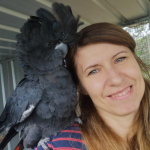
Petra Schnitzer
Petra Schnitzer graduated in 2010 from the Veterinary University in Vienna, Austria, where she also served as a scientific assistant in the clinic for birds, reptiles, and fish. After gaining experience in various clinics in Italy and at Loro Parque in Tenerife, Spain, she began a residency with the European College of Zoological Medicine to deepen her expertise in Avian Medicine and Surgery. In 2014, she completed an advanced course in the Welfare and Care of Laboratory Animals at the School of Veterinary Medicine in Milan, Italy. The following year, she earned the ISVPS General Practitioner Certificate in Exotic Animal Practice. In 2021, she successfully gained membership in the Australian and New Zealand College of Veterinary Scientists in Medicine and Australasian Wildlife. Since 2023, she has been a Diplomate of the American College of Exotic Pet Medicine and completed a Master's in Small Animal Ultrasound in 2024. Petra Schnitzer collaborates with various veterinary and animal associations as a scientific consultant and is a regular speaker at national and international conferences. She is the author and co-author of numerous scientific papers and book chapters and supervises veterinary students on their diploma theses. After serving as a research assistant and teacher at the Free University of Bolzano in Italy and the University of Sydney, she is now a freelance veterinarian in Italy and works at the teaching hospital of the veterinary faculty at the University of Milan and for ACTP in Berlin.
Program Coordination Team

Alexandre Azevedo

Teresa Teigão
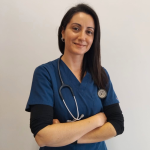
Carolina Bento
Carolina completed her Degree in Veterinary Medicine and Master's degree at the Faculty of Veterinary Medicine of the University of Lisbon, and a PhD in virology and immunology of cetaceans at the same institution. Additionally, she recently (in 2023) completed a Master's degree in Bioinformatics and Biostatistics at the Universidad Catolica de Murcia. Working as a veterinarian at Vetcondeixa, specializing in small and exotic animals, she also serves as an Assistant Professor at EUVG. Since 2009, she has extensively collaborated with Cram-ECOMARE, contributing to internships, projects, and providing veterinary consulting services. Carolina has completed postgraduate courses in exotic and wild animal medicine and surgery, as well as in abdominal and cardiac ultrasound.
